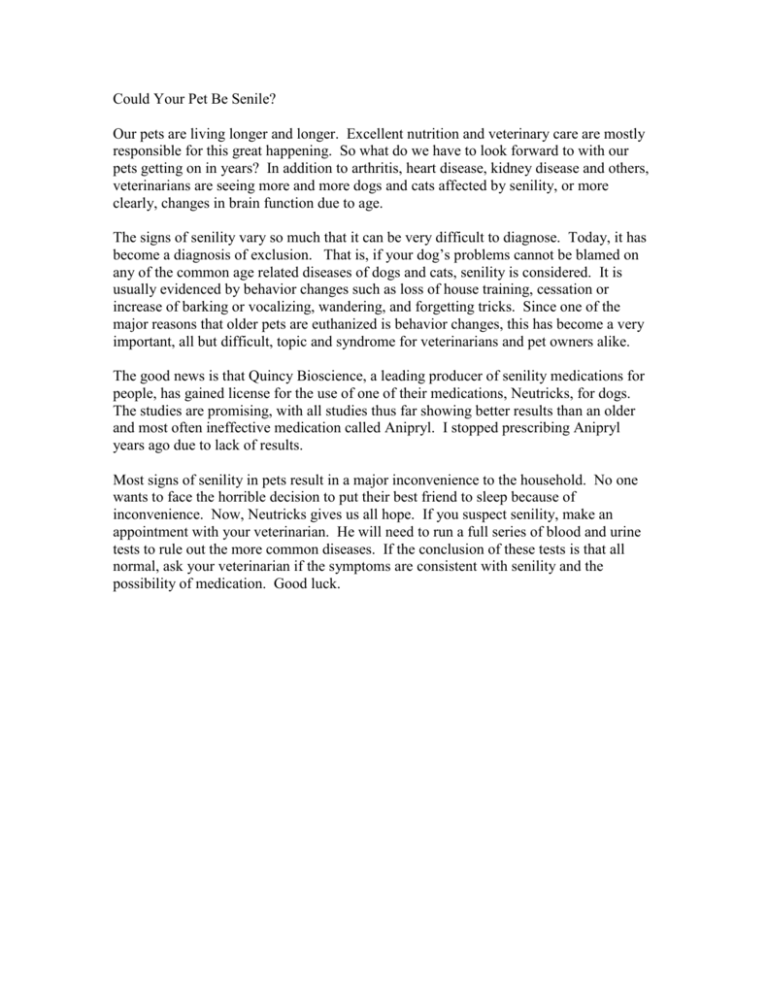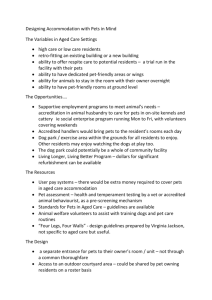Could Your Pet Be Senile - Animal Hospital of Verona
advertisement

Could Your Pet Be Senile? Our pets are living longer and longer. Excellent nutrition and veterinary care are mostly responsible for this great happening. So what do we have to look forward to with our pets getting on in years? In addition to arthritis, heart disease, kidney disease and others, veterinarians are seeing more and more dogs and cats affected by senility, or more clearly, changes in brain function due to age. The signs of senility vary so much that it can be very difficult to diagnose. Today, it has become a diagnosis of exclusion. That is, if your dog’s problems cannot be blamed on any of the common age related diseases of dogs and cats, senility is considered. It is usually evidenced by behavior changes such as loss of house training, cessation or increase of barking or vocalizing, wandering, and forgetting tricks. Since one of the major reasons that older pets are euthanized is behavior changes, this has become a very important, all but difficult, topic and syndrome for veterinarians and pet owners alike. The good news is that Quincy Bioscience, a leading producer of senility medications for people, has gained license for the use of one of their medications, Neutricks, for dogs. The studies are promising, with all studies thus far showing better results than an older and most often ineffective medication called Anipryl. I stopped prescribing Anipryl years ago due to lack of results. Most signs of senility in pets result in a major inconvenience to the household. No one wants to face the horrible decision to put their best friend to sleep because of inconvenience. Now, Neutricks gives us all hope. If you suspect senility, make an appointment with your veterinarian. He will need to run a full series of blood and urine tests to rule out the more common diseases. If the conclusion of these tests is that all normal, ask your veterinarian if the symptoms are consistent with senility and the possibility of medication. Good luck.








